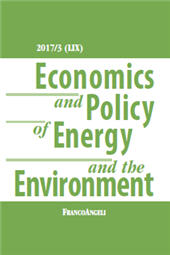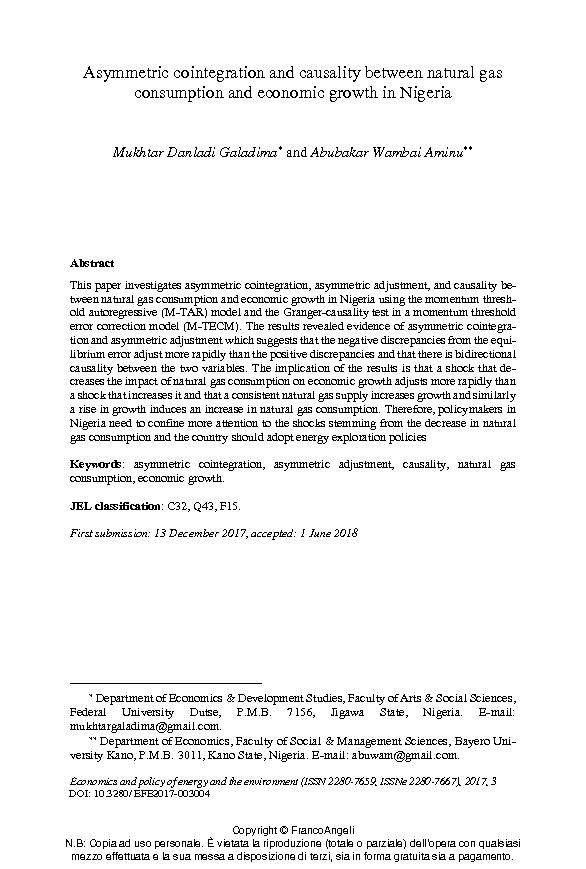Asymmetric cointegration and causality between natural gas consumption and economic growth in Nigeria
59-71 p.
This paper investigates asymmetric cointegration, asymmetric adjustment, and causality between natural gas consumption and economic growth in Nigeria using the momentum threshold autoregressive (M-TAR) model and the Granger-causality test in a momentum threshold error correction model (M-TECM). The results revealed evidence of asymmetric cointegration and asymmetric adjustment which suggests that the negative discrepancies from the equilibrium error adjust more rapidly than the positive discrepancies and that there is bidirectional causality between the two variables. The implication of the results is that a shock that decreases the impact of natural gas consumption on economic growth adjusts more rapidly than a shock that increases it and that a consistent natural gas supply increases growth and similarly a rise in growth induces an increase in natural gas consumption. Therefore, policymakers in Nigeria need to confine more attention to the shocks stemming from the decrease in natural gas consumption and the
country should adopt energy exploration policies. [Publishers' text].
-
Artikel aus derselben Ausgabe (einzeln erhältlich)
-
Informationen
ISSN: 2280-7667
KEYWORDS
- Asymmetric cointegration, asymmetric adjustment, causality, natural gas consumption, economic growth



